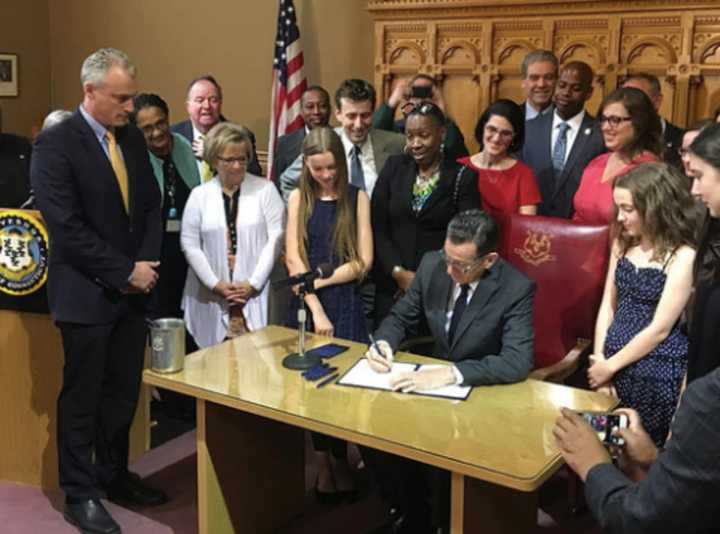Proposed by Malloy in his State of the State address earlier this year, the new law signed on Tuesday, May 22 prohibits employers from asking about a prospective employee’s wage and salary history during the job interview process.
“Even as they work harder and harder, the pay gap between men and women who are doing the same job continues to grow – particularly among women of color, and that is completely unacceptable,” Malloy said. “Among other causes, this inequity is perpetuated by the practice of asking prospective employees for their salary history before an offer of employment is put on the table, which disproportionately ensures that women who were underpaid at their first job continue to be underpaid throughout their careers, creating a cycle and causing harm. . . .We need to be leaders on this front, and I thank all of the hardworking proponents who got this bill across the finish line so that I could sign it into law.”
Numerous studies have found that women are paid less in nearly every occupation, at every age, and at all educational levels. In Connecticut, it has been found that women are paid on average 82 cents for every dollar paid to men.
The pay gap is even worse for women of color – black women in Connecticut are paid 58 cents and Hispanic women are paid 47 cents for every dollar paid to white, non-Hispanic men.
Public Act 18-8 takes effect on Jan. 1, 2019. The bill was approved by near-unanimous votes in both chambers of the General Assembly.
“Many factors support ongoing wage inequity. For each that goes unaddressed, women and families bear the brunt of a system stacked against them,” Lt. Governor Nancy Wyman said.
“CWEALF was proud to work with a bipartisan group of lawmakers, advocates and Governor Malloy to champion Public Act 18-8, An Act Concerning Pay Equity,” Kate Farrar, Executive Director of the Connecticut Women’s Education and Legal Fund (CWEALF), said.
Click here to follow Daily Voice Newtown and receive free news updates.
